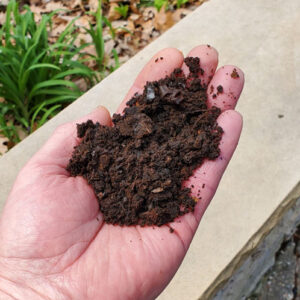The Power Of Hot Composting: Transforming Food Scraps Into Nutrient-Rich Treasure
HEALTHY SOIL :
Hot composting works better than normal composting for food scraps.
Hot composting excels in nutrient retention essential for soil health.
Share this post

Using The Innovative Incuposter™
Composting is a natural process that converts organic waste into nutrient-rich soil, benefitting both the environment and our gardens. While traditional composting methods have been practiced for centuries, hot composting has emerged as a more efficient and rapid alternative, especially when it comes to processing food scraps. In this article, we will delve into the reasons why hot composting works better than normal composting for food scraps, using the innovative Incuposter™ by Aira Corp as an example of a hot composter that exemplifies these advantages.
The Basics Of Composting
Composting is a biological process where organic materials, such as kitchen waste, yard clippings, and leaves, break down into a dark, crumbly substance known as compost. Traditional composting involves the gradual decomposition of these materials, driven by the activities of microbes, bacteria, and fungi. This slow process can take several months to a year before the compost is fully ready for use.
Hot Composting: Accelerating Nature's Process
Hot composting, also known as thermophilic composting, takes the principles of traditional composting to a whole new level. The key distinction lies in the temperature at which the decomposition occurs. While traditional composting may reach temperatures of around 90°F (32°C), hot composting pushes the pile's temperature much higher, typically between 120°F and 160°F (49°C to 71°C). This significant temperature boost results in accelerated decomposition and several advantages, especially when it comes to processing food scraps.
1. Rapid Breakdown Of Food Scraps
Food scraps, such as vegetable peels, fruit remains, and coffee grounds, can take a considerable amount of time to break down in traditional composting methods. The elevated temperatures in hot composting create an environment where microbes and bacteria thrive, breaking down these materials much more quickly. As a result, food scraps are transformed into nutrient-rich compost in a matter of weeks rather than months.
The Incuposter™ by Aira Corp exemplifies this advantage with its efficient heating system. By maintaining the ideal temperature range, it ensures that food scraps are broken down rapidly, minimizing odors and the risk of attracting pests that can be common issues in normal composting.
2. Pathogen And Weed Seed Elimination
One of the primary concerns with composting food scraps is the potential for harboring pathogens and weed seeds that can survive in the compost and find their way back into the garden. Hot composting's high temperatures effectively eliminate these harmful elements, reducing the risk of introducing pests, diseases, and unwanted plants to your garden.
The Incuposter™'s advanced design includes features such as aeration and temperature control that aid in pathogen and weed seed destruction. This level of control ensures that the compost produced is safe and free from potential contaminants.
3. Nutrient Retention
Hot composting also excels in retaining more of the nutrients present in the original food scraps. The rapid decomposition process preserves essential elements like nitrogen, phosphorus, and potassium, which are vital for plant growth. These nutrients are then readily available to enrich the soil and enhance the health of your plants.
4. Smaller Footprint And Lesser Odor
Normal composting methods can sometimes result in unpleasant odors, especially when processing food scraps. Hot composting's accelerated decomposition significantly reduces the duration of any potential odor issues. Additionally, the controlled environment of hot composting systems, such as the Incuposter™, helps contain odors, making them less noticeable. With hot composting systems, food scraps containing protein and fat can now be composted without unpleasant odor.
5. Environmental Impact
Hot composting, due to its efficiency and speed, can be considered more environmentally friendly. The reduced processing time means fewer greenhouse gas emissions associated with decomposition. Additionally, diverting food scraps from landfills through hot composting helps reduce methane emissions, a potent greenhouse gas generated in landfills.
The Incuposter™: A Remarkable Example
The Incuposter™, developed by Aira Corp, stands as a prime example of the benefits of hot composting, especially for food scraps. Its innovative design and features highlight how hot composting can be harnessed to its fullest potential.
- Temperature Control: The Incuposter™ maintains the optimal temperature range for hot composting, ensuring rapid decomposition while neutralizing pathogens and weed seeds.
- Aeration and Moisture Regulation: Adequate aeration and moisture are crucial for efficient composting. The Incuposter™'s automated system ensures these factors are carefully managed to support healthy microbial activity.
- Compact and User-Friendly: The Incuposter™ compact design makes it suitable for various settings, including small yards or even urban environments. Its user-friendly controls and automated features make hot composting accessible to a wider audience.
Conclusion
Hot composting has emerged as a game-changer in the world of composting, particularly for efficiently processing food scraps. With its ability to accelerate decomposition, eliminate pathogens and weed seeds, retain more nutrients, and minimize environmental impact, hot composting offers a compelling solution for those looking to transform their kitchen waste into nutrient-rich gold. The Incuposter™ by Aira Corp serves as a shining example of how innovation in hot composting technology can make this process more accessible, effective, and beneficial for both gardeners and the planet.
Incorporating hot composting into your sustainable practices not only reduces waste but also enriches your soil and contributes to a healthier environment. As you embark on your composting journey, consider exploring hot composting systems like the Incuposter™ that exemplify efficiency, environmental consciousness, and the transformational power of nature. You can learn more about the Incuposter™ at https://airacorp.com/healthysoil-incuposter/
Key Takaway
